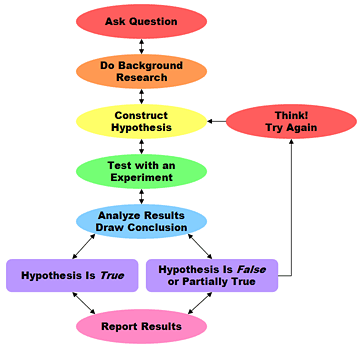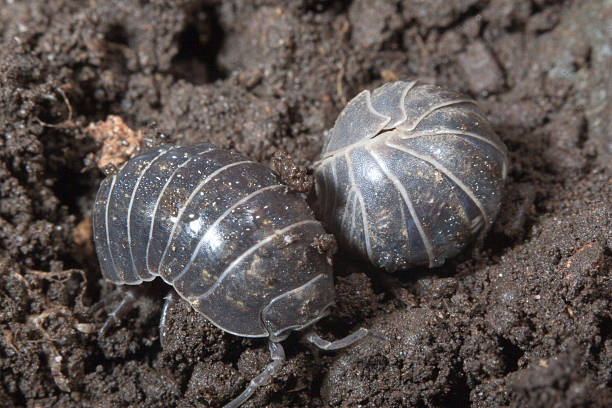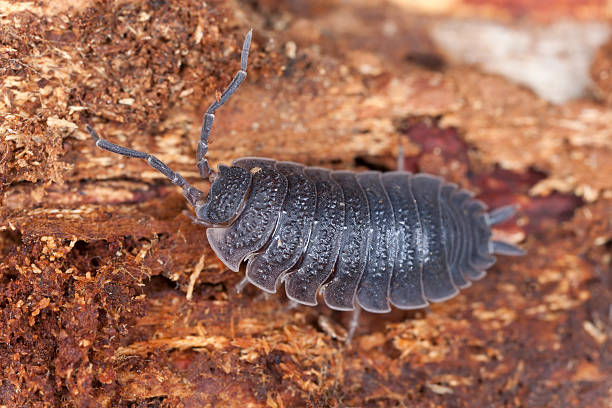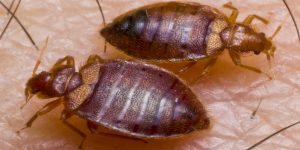Discovery and the Scientific Method (Week 1 of 2) – In-Person Lab Sp23
Scroll below for In-Person Labs

Complete the following and submit on Moodle before you come to lab:
- Read the lab 2 unit (pp. 13-15, pp. 18-21), and Appendix E (pp. 222) Resources webpage.
- View the following:
- How Science Works Interactive – Use this resource to learn about the process of science and to build your Experimental Design Project (see last bullet for project information). Choose “Standard” and then “Intro” once in the interactive.
- Experimental design interactive – Click on “Start Interactive”, then use the arrow buttons in the upper left to navigate through the interactive. Review the Steps of the Scientific Method and see how this relates to the Keystone Species Example research by Dr. Robert Paine. Answer the provided questions in the Pre-Lab.
- Scientific Investigation and Experimental Design Components – Read the Abstract and Methods in the following research paper. Journal of Medical Entomology Bed Bug study, concerning habitat color preference.
Experimental Design Project Information – overview
- Design Project Description
- Experimental Design Timeline
- General Lab Report Rubric for Progress Report – focus on written Methods and Results that will be turned in for the Progress Report due later in the semester (see Lab Schedule)
- Final Presentation Structure
- Full Presentation Guide and Rubric (see Lab Schedule)
How to record your Presentation in Zoom and save to the cloud. For screen sharing and recording, you may need to unlock/enable permissions from your computer preferences menu (not zoom preferences). ALSO REMEMBER TO PROVIDE THE ZOOM PASSWORD with your Zoom link on your title slide.


Pill bugs, left, and and Sow bug on the right, look quite similar, but careful examination will show their differences.
Activity Two: Designing and Conducting an Experiment (p. 18-21).
As a table, each group of students will review the background information provided in the lab manual and make some of your own direct observations (p. 20) on these isopods. Then design and carry out their own experiments to learn more about Pill bugs and/or Sow bugs.
Groups should discuss your ideas and experimental design with your TA before setting up and running the experiment. Fill out page 21 identifying all the experimental variables. Careful planning is key to designing a good experiment.
Collect data and construct a proper Graph. You may find the Lab Manual Appendix D Graphing Using Excel (p. 220 for key components) and Appendix E Understanding and Representing Data helpful. Also include a written summary paragraph of your the graph. Graphs should be produced using a graphing program, such as Excel or Google Sheets. NCSU Student can download Microsoft Office 365 from NC State’s OIT software site) for free. Including all data points or data averages may be helpful when considering what type graphs will best represent/summarize your experiment.
You can work on your graphs as a group, but the written summary of the results should be in your own words (not written as a group or copied from other students). Each student should upload their own graph and summary in Moodle. (5 pts)
Be prepared to share your experiment, results and graph with your TA /class once you are back in class.
If there is not enough time In-Lab, your TA may extend the graphing and written summary to be due by the start of lab next week.
Class discussion – Be prepared to share your experiment, results and graph with the class. After running the experiment and collecting data, what were the strengths of your design – what worked well? What problems did you face? How might you revise your experiment? Sometimes preliminary data collection is necessary to revise and design better experiments!
Introduction to the Experimental Design Project – Class Discussion
- Your TA will discuss an overview of the semester long project.
- Students will then share their topics and ideas for projects with your smaller peer group.
- How does your project relate to BIO 181: Intro to Ecology, Evolution and Biodiversity?
- How will you carry out your study? Is it feasible? –> idea sharing
- Complete the questions on page 27-28 of the lab manual (#1-5).
- Scan and upload the completed lab manual questions to the Moodle lab site and start your Initial Experimental Design Project planning.
The Scientific Process
Graphing Resources
- Appendix D – Graphing Using Excel
- Appendix E – Understanding and Representing Data
Sample Scientific Papers
Writing Lab Reports – Use when writing the Ecology Lab Report – Lab Units 4.1 and 4.2
- Inside-Out-Approach to writing lab reports
- LabWrite Home
- Guide to Analyzing Sections of a Lab Report
- Sample Lab Reports –look at formatting AND how references are used and cited.
- PPT that shows common mistakes with plagiarism
- PowerPoint from a Workshop on Writing Lab Reports
- (PPT tells you the basics, but also addresses common mistakes and questions from past students.)
- Writing tips for Scientific Writing (Active/Passive Voice, Wordiness, References, Pronouns, Tense Issues, Syntax)
- View a Sample Scientific Journal Article – Honey Bee Article
Finding and Citing References in your Lab Report
- Check out the Resources page on the main Lab homepage to help with writing in-text citations and full references.
- 8th Edition CSE Scientific Style and Format Citation Quick Guide
Additional help outside of the Biology Department and your TA
An Experiment with Bed Bugs – mentioned in the Library Tutorial
